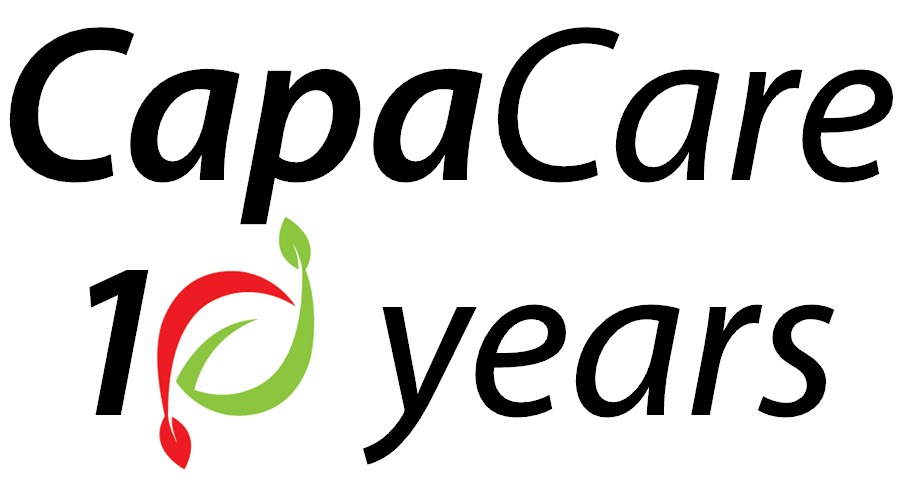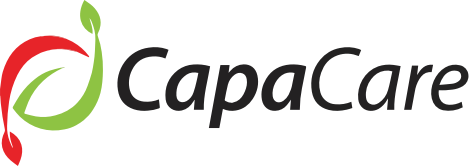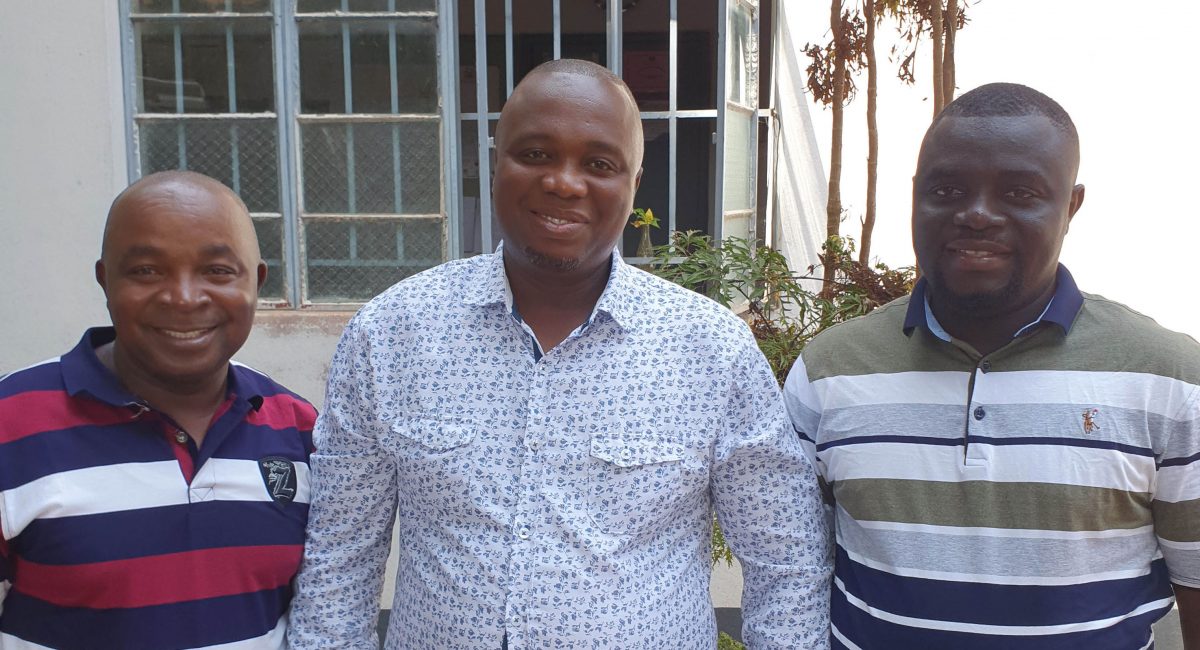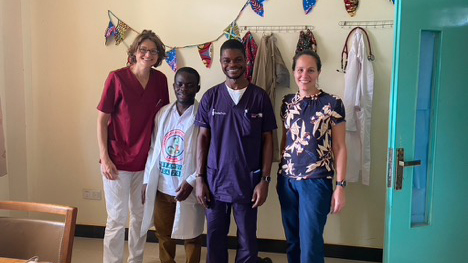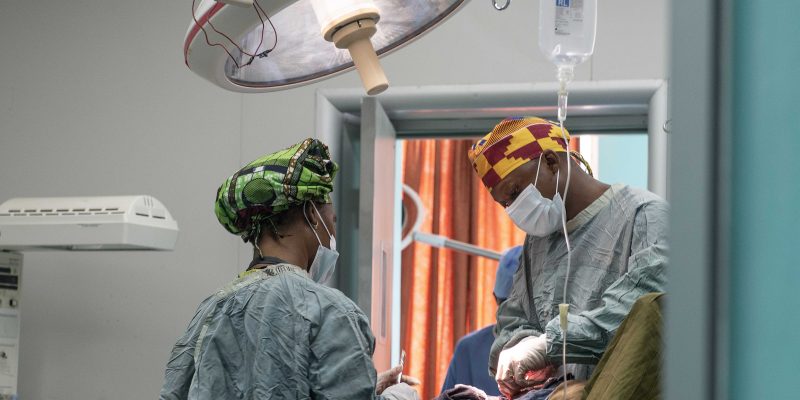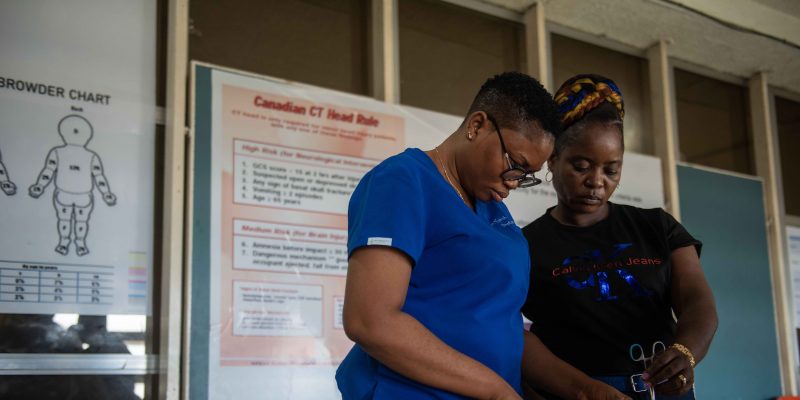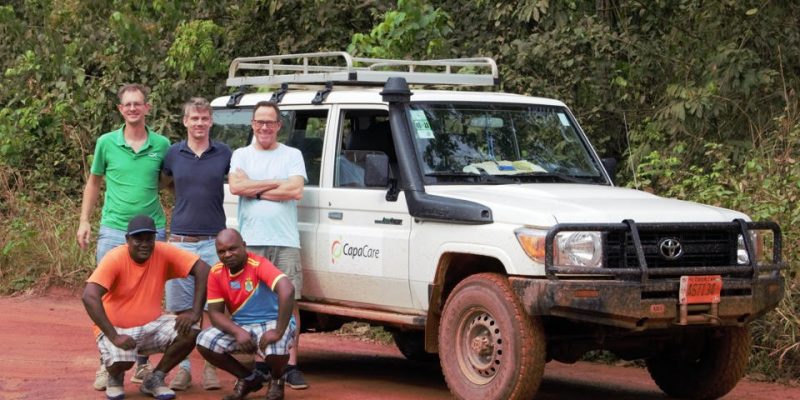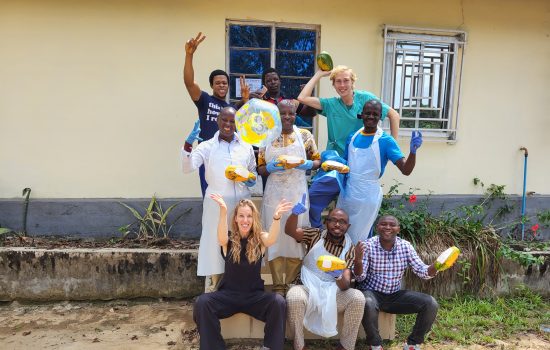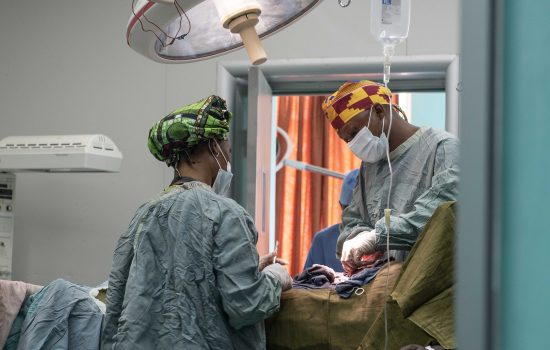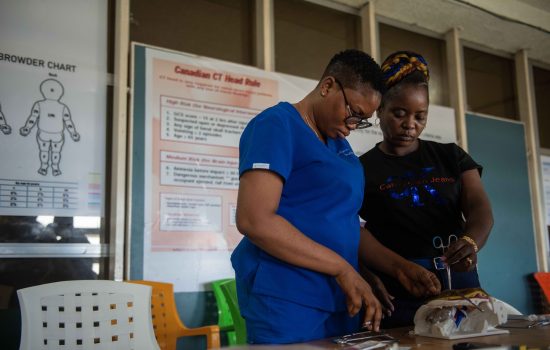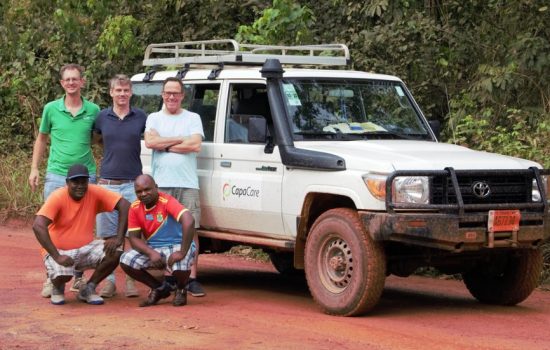It is now ten years since the first students started their journey in the Surgical Training Programme (STP) in Sierra Leone. This was the start of CapaCare providing training in life-saving surgical and obstetric skills. The vision of the organisation is to contribute to sustainable healthcare systems through capacity building in underserved populations. During 2021 we are reflecting on the last ten years by interviewing people every month that have played an important role in the development of the organisation and Programme. This month we have interviewed the local management team of CapaCare, which consists of Samuel M. Sankoh, Mohammed John Turay and Francis S. Vandy.
- Can you describe briefly what your role is in CapaCare?
John: My current position is the Finance Manager of CapaCare Sierra Leone. I have been in this position since 2015. My major role is to manage the day-to-day activities of the organisation, especially in terms of funding. I am also in contact with financial partners and with national and international donors. I also ensure the NGO registration of CapaCare within the country.
 Samuel M. (SM): Since 2011 I have been the National Coordinator of the Programme. My role is to coordinate local activities within the country, like when students are coming into the Surgical Training Programme, I am the first contact. I talk and listen to them. I check if they are getting exposed and if there are any challenges. I explain the medical superintendents of the partner hospitals the aim of the Programme and what they need to cover when students are there. I also visit the Ministry of Health and Sanitation (MoHS) to promote the Programme.
Samuel M. (SM): Since 2011 I have been the National Coordinator of the Programme. My role is to coordinate local activities within the country, like when students are coming into the Surgical Training Programme, I am the first contact. I talk and listen to them. I check if they are getting exposed and if there are any challenges. I explain the medical superintendents of the partner hospitals the aim of the Programme and what they need to cover when students are there. I also visit the Ministry of Health and Sanitation (MoHS) to promote the Programme.
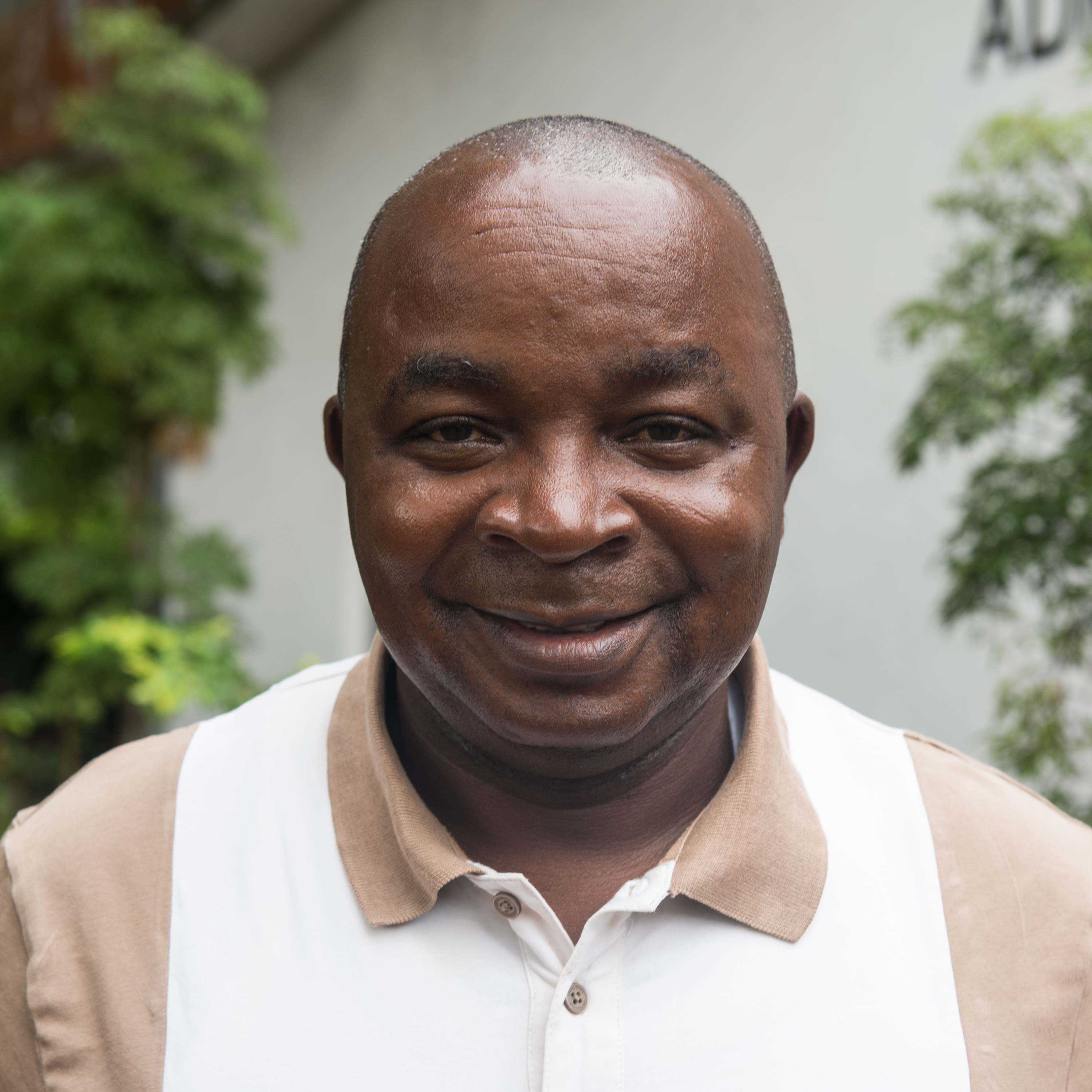
Francis: I joined CapaCare in 2015. I am operating in three different positions; I serve the administration, the monitoring and evaluation of the Programme and human resources. Basically, for the administrative side, my task is to monitor the day-to-day running of the Programme and to supervise the supportive staff such as the drivers and the security staff. I report on the activities of the Surgical Training Programme to our donors. I also play a role in the supervision of the students in partner hospitals. Besides this I am also the manager of the human resources. This means that I take care of the staff and students, applications for program and selection of the students.
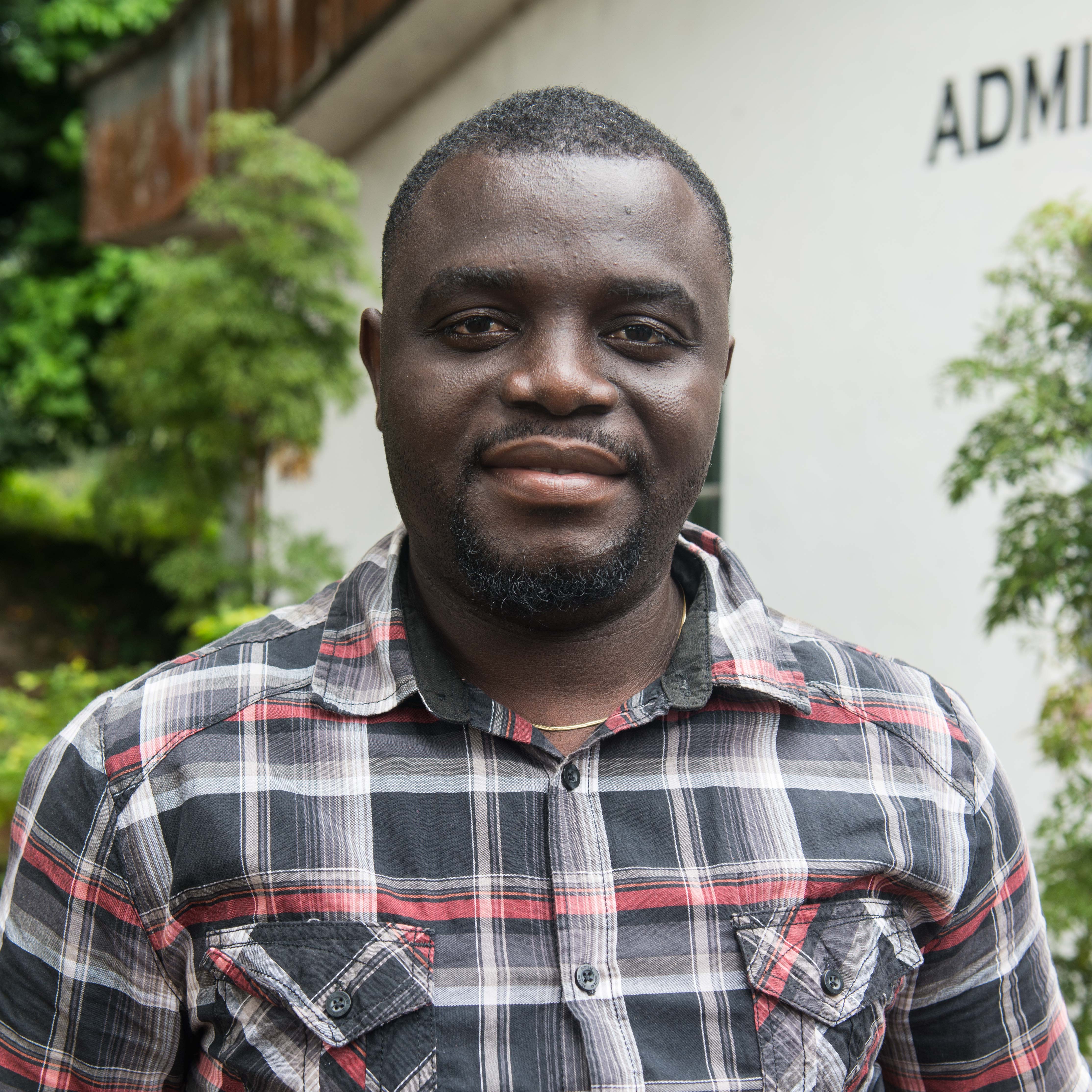
- All of you have been working for CapaCare quite some time. What keeps you motivated to work for CapaCare?
Francis: This question reminds me of a very sad story. When I was in high school, I was with my uncle who was paying the fees and the royalties. I passed high school to go to university, but then unfortunately my uncle got sick, and needed surgery. We took him to the hospital at night but unfortunately there was no doctor in the hospital who could operate on my uncle at that time. So, I was very sad to lose my uncle, who also was the one who paid my school fees. After that, I had to struggle a lot. So that is my motivation – I know the constraints and the challenges I faced when I lost my relative that was responsible for me and it is the same challenge that other Sierra Leoneans face because of a lack of medical doctors in district hospitals, especially doctors that perform surgery. Despite the fact that I am not a medical doctor, I have a role to play in contributing to the medical sector of the country.
John: Several things keep me motivated to work for CapaCare. One of them is that the organisation has a very much open-door policy. For example, I can directly talk to the International Chair of CapaCare and look into all documents of the organisation. We see ourselves not as workers, but as part of the organisation. There is also a high team spirit in the organisation. We support each other. As Finance Manager I sometimes give support to the administration or the Programme Coordinator and they give support to me if I need it. And above all is that CapaCare is an educational organisation. I am very much interested in the training and research activities of the organisation.
SM: When the Programme started in 2011 I was working in the hospital pharmacy. The two first students, Emmanuel and Amara, had been in the Programme just for two or three months. One day I went to the hospital wards and I saw a lady with an ectopic pregnancy. Just after 10 minutes there came a lady with multiple injuries after an accident. I saw Amara handling the situation. I thought that Amara would help the lady with the injuries first, because she had blood all over her body. But after Amara had screened both patients, he told his colleagues to take care of the lady with the injuries and he took the lady with the ectopic pregnancy to the operation theatre. I did not understand why, because the pregnant lady did not have any injuries. Amara explained to me that the pregnant lady needed an emergency operation immediately because otherwise we would have lost her life. This Programme was only two or three months old and I saw people taking action like this and saving a life! I thought, this is good because I see our mothers and sisters die in district hospitals because of a lack of surgery. Then I decided that I wanted to be part of the Programme. As the National Coordinator in CapaCare, my motivation and mission is that I want to help to save the lives of my people in Sierra Leone.
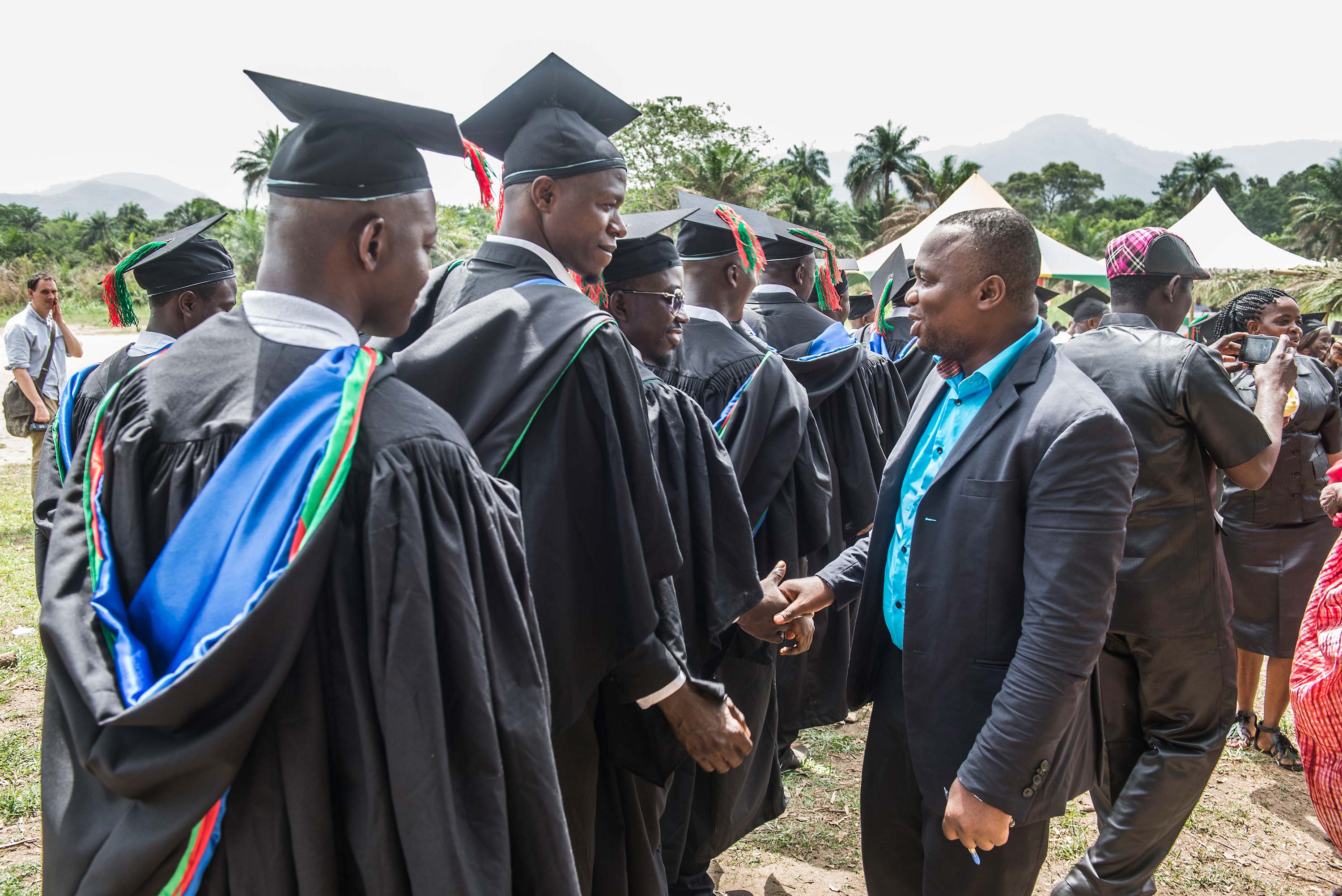
- Your background is non-medical, how is the work constantly with all these medical people?
SM: My background is actually in public health and I worked in the pharmacy for almost five years. During that time, I worked with many doctors. The interesting thing about medical healthcare workers is that if they say ‘this’, it has to be ‘this’. You cannot delay. That is why I am happy with them, they are very strict.
John: It is sometimes challenging because there is one fundamental difference. Medical people are not that interested in financial management. It is important to guide your colleagues in the financial aspect of the organisation. If you explain things in a good way, they will be interested to learn from you. Especially for financial work, because that is very difficult for many people. All the Programme Coordinators are medical doctors before they come, but when they leave, they will have some administration background.
Francis: My background is from administration, monitoring, evaluation and culture. So, it is very different to medicine. In other jobs with the government I also worked with doctors, so I have some experience that I can use now and now I have worked for CapaCare for a long time, I understand quite a lot of the medical issues that the students face.
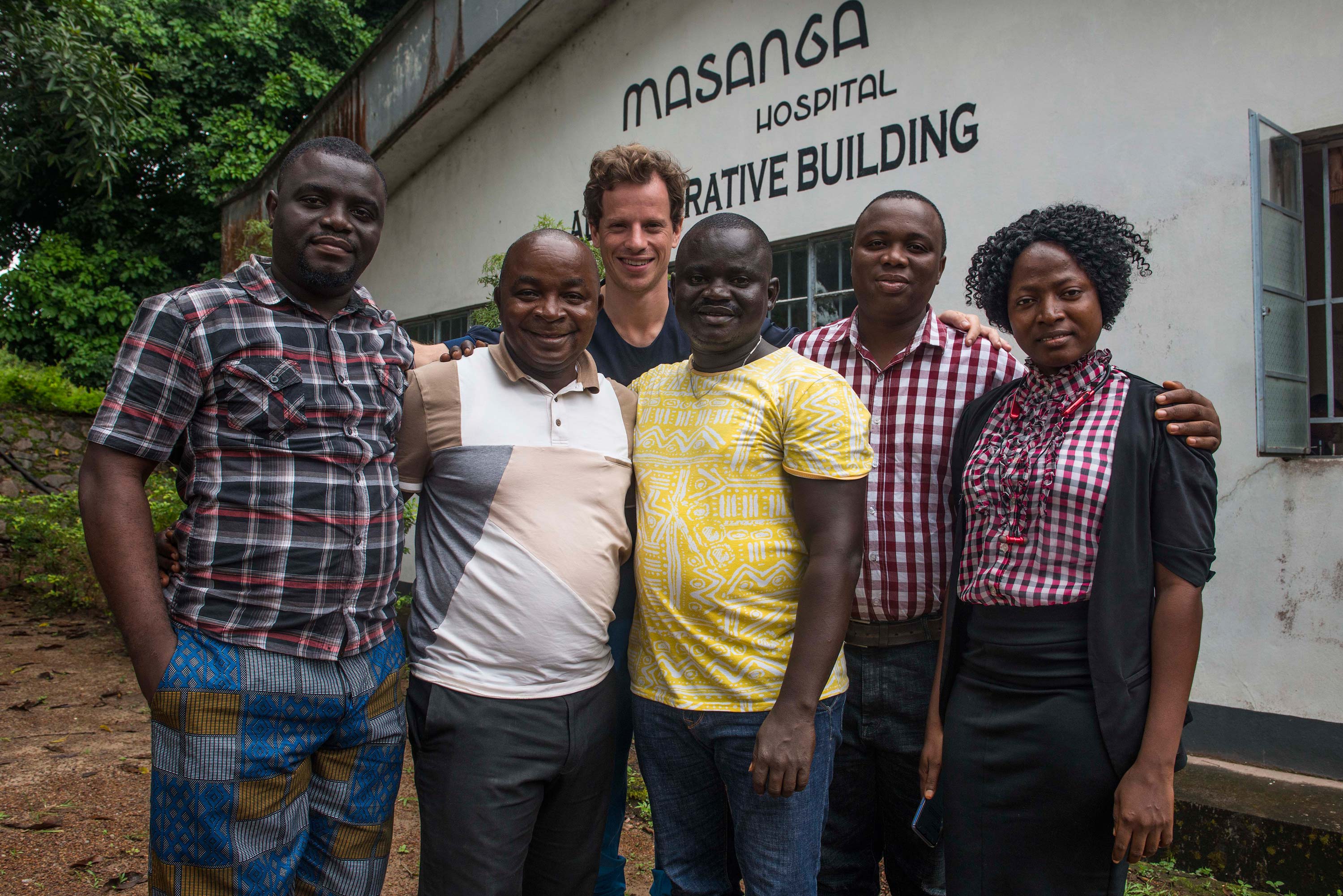
- How do you see the future of CapaCare?
Francis: We have the evidence to show that the STP is indeed influencing the life of Sierra Leoneans. It has manifested itself and the results are there. This is a good Programme, now we need sustainability. I would like the involvement of the Ministry of Health and Sanitation (MoHS) of the Sierra Leonean government to be more involved in the Surgical Training Programme – to make it more sustainable instead of relying 100% on donors. Secondly, I hope to see in the future that Sierra Leonean nationals are taking more responsibility for the implementation of the Programme. I also hope to see CapaCare intensify the empowerment of the students and the SACHOs.
SM: Francis has said many interesting things that are important for the programme. Also important for the future is to ensure the governmental licenses of the SACHOs. I hope to see this collaboration with the government established. I also want to see more involvement of national medical doctors, to train our brothers and sisters in this country. We also need to extend the ownership of the national board in this Programme, because the STP belongs to us in the long run. Because this Programme is for the benefit of Sierra Leoneans, so we want to take our own part.
John: Well, the future of CapaCare is bright. I see it to be somehow sustainable if we continue the current trend that has already been set. Because CapaCare is a NGO, it runs on donor money and donor money will not last forever. We are already working with local institutes and local authorities and involving them in the Programme. I am happy for the strong partnership with the MoHS and the Makeni School of Clinical Sciences, so that in the end us as Sierra Leoneans will be able to continue the Surgical Training Programme even if donors decides to stop their support. I really hope that CapaCare will stay in Sierra Leone for a very long time because there is still a lot that needs to be done. The only issue I see is the dependence on international trainers. We know that they are not paid and doing the training on a voluntary basis. It is important to work on how to incorporate more national trainers in the Programme to ensure sustainability. We are on the right path, even at an international level. There are several CapaCare departments and they are trying to establish CC Liberia. That shows that the organization has come to stay and not just to come and go.

